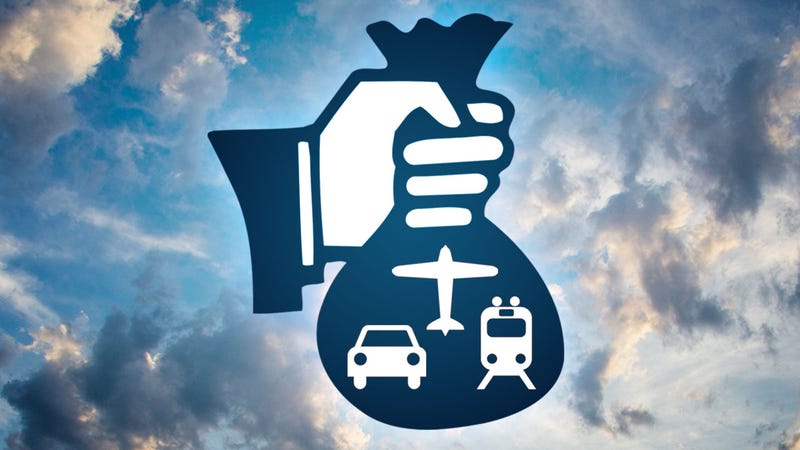Title : Do I Really Need to Buy Travel Insurance?
link : Do I Really Need to Buy Travel Insurance?
Do I Really Need to Buy Travel Insurance?

Four questions to ask before you buy travel policy
Aleksandar Nakic | Getty Images
Lost crates. Canceled flights. A tropical storm. There are plenty of what-ifs who are able to thwart your summer travel plans. But does it consequently follow that you need circulate guarantee ?
Consumers are expected to shell out $98.02 billion on travel over the 3 month between Memorial Day and Labor Day, according to the ADI Travel Trends Report for 2017. That's one-third of the total circulate spend is planned for 2017.
Deciding whether you'd benefit from trip assurance isn't a speedy "yea" or' nay ." Experts say it depends on several factors, including the cost and components of your journey, where you live and where you're headed, and what possible troubles you're worried about.( We are in for an" above regular" hurricane season, after all .)
" There's no simple-minded reaction, because everyone's expedition is slightly different ," responded Christopher Elliott, who preaches on behalf of travelers through his website, Elliott.org .
You might even be covered already. A new analysis from WalletHub.com found that one-third of debit card render jaunt cancellation policy, with an average $3,200 in coverage. Nearly 40 percentage give lost luggage guarantee, and a one-quarter present retarded luggage policy .
These four doubts can help you weigh your options :
70
SHARES
Kelli B. Grant | @kelligrant
Monday, 12 Jun 2017 | 8: 30 AM ET
1) How much money is at post ?
Check the change and abandonment programmes for passage constituents including flights, inns, sails and car rentals, as well as any end activities previously purchased, such as theme park tickets. That can help you assess how well much coin might be lost if you need to cancel or adjourn your excursion, or pate home early .
If that total is more than you're willing or able to lose, then roam coverage is usefulnes a closer regard, spoke Loretta Worters, a vice president at the Insurance Information Institute .
71625007 David Sacks | Getty Images
2) What are your travel plans ?
Big-ticket junkets with intricate itineraries are often better contenders for coverage, Elliott mentioned.( Think multicountry European trip or a bucket-list African safari, versus a domestic getaway to grandma's .) A policy could help cover costs for situations such as the tour corporation going out of business, or a delayed flight that means you miss your cruise deviation .
You might also want to consider travel insurance with medical coverage if you're headed abroad( where your health insurance may not be valid) or to a remote region or on a cruise( where getting to a hospice may require air expulsion ), Worters alleged. Uncovered, those overheads could add up to tens of thousands of dollars .
Michal Venera | Getty Images
3) What are you worried about ?
Dig into the details to make sure a program would volunteer the coverage you miss. Universally addressing, you have two alternatives: listed exclusion( which incorporates a limited stray of happenings and situations ), and cancel-for-any-reason coverage( which, true-blue to its reputation, offers wide-reaching coverage ). The onetime generally rolls 5 to 7 percentage of the cost of your jaunt, and the latter, 8 to 10 percent, Elliott enunciated .
" Named exclusion is a little more high-risk ," he answered, with big-hearted the differences in what's covered and when .
Say you're worried about hurricane season, which leads from June 1 through Nov. 30. One programme might allow you to cancel your trip-up as soon as there's an official storm warning in fact for your end, while another may require a bigger impact like a delayed flight, announced Steven Benna, a spokesman for comparison locate Squaremouth. You won't be covered at all if the commotion peril your outing is named before you buy a policy .
Keep in judgment that unless you get a cancel-for-any-reason programme, anxiety of excursion -- do, because you're worried about recent terrorist attacks or that you might contract a disease such as Zika at your destination -- often isn't included .
Burton McNeely | Getty Images
4) Do you already have coverage ?
Before you buy a third-party traveling insurance policy, check to see if you already have some protections through other sources. For instance, a homeowners or renters insurance policy may plow your belongings away from residence, suggested Worters -- curing lessen concern about fraud or lost luggage .
Travel insurance is also a common benefit for credit cards, accommodated you paid for those travel the agreements with the card.( Again, you'll want to scrutinize items carefully .) On the most generous placards, you might have coverage of up to $10,000 per journey, according to a recent Squaremouth analysis .
That might mean you don't need a policy at all, or only need one that replenishes in gaps -- suggest, to add medical coverage and consider any errand expenditures that outperform the cap, said Benna. That stacking can help you create a most comprehensive programme at a lower cost, he did .
If you're a frequent traveler, insurance coverage is also able to be something you look for the next time you're hunting for a new placard, did Jill Gonzalez, an adviser at WalletHub.com .
" These benefits are likely not top of attention ," she supposed -- but they could save you hundreds of dollars .